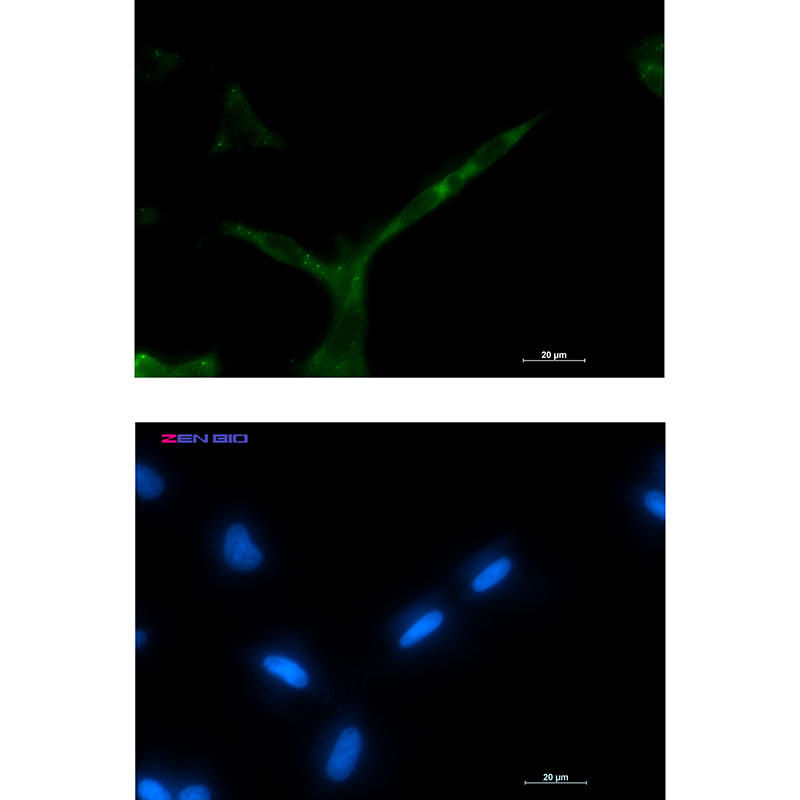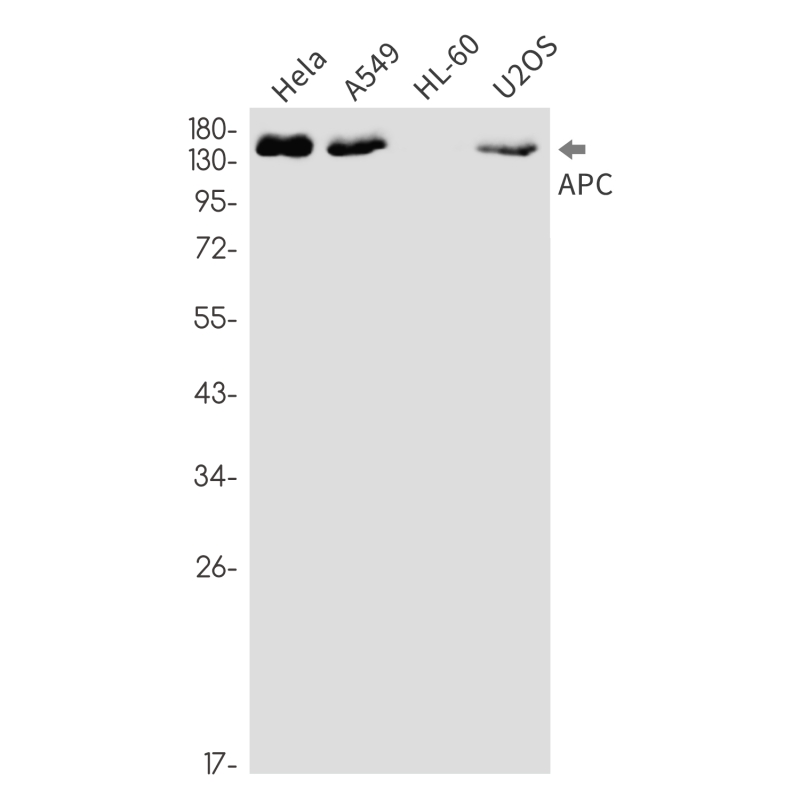

| WB | 1/500-1/1000 | Human,Mouse,Rat |
| IF | 1/20 | Human,Mouse,Rat |
| IHC | 咨询技术 | Human,Mouse,Rat |
| ICC | 1/50-1/200 | Human,Mouse,Rat |
| FCM | 咨询技术 | Human,Mouse,Rat |
| Elisa | 咨询技术 | Human,Mouse,Rat |
以下是关于APC(腺瘤性结肠息肉病蛋白)抗体的3篇代表性文献摘要:
---
1. **文献名称**:*Identification of FAP locus genes from chromosome 5q21*
**作者**:Kinzler KW, Nilbert MC, Vogelstein B, et al.
**摘要**:该研究首次克隆了APC基因,揭示了其在家族性腺瘤性息肉病(FAP)和结直肠癌中的作用。通过APC抗体的应用,发现APC蛋白通过与β-catenin结合调控Wnt信号通路,其突变导致β-catenin积累并促进肿瘤发生。
2. **文献名称**:*The APC protein binds to microtubules and regulates cell migration*
**作者**:Nathke IS, Adams CL, Polakis P, et al.
**摘要**:研究发现APC蛋白通过与微管结合参与细胞骨架的动态调节,影响细胞迁移和极性。利用APC抗体的免疫荧光技术,揭示了APC在细胞边缘和伪足中的定位,表明其功能缺失可能导致细胞迁移异常和癌变。
3. **文献名称**:*APC mutations in colorectal tumours: A review of genotype-phenotype correlations*
**作者**:Lamlum H, Al Tassan N, Jaeger E, et al.
**摘要**:综述总结了APC基因突变与结直肠癌临床特征的关系。通过APC抗体的免疫组化分析,发现突变导致的截短蛋白表达缺失与肿瘤侵袭性相关,为诊断和预后评估提供了分子标志物。
---
这些文献涵盖了APC抗体的基础机制研究(Wnt信号、细胞骨架)及临床应用(癌症诊断),反映了其在科研与医学中的关键作用。如需更多领域(如免疫学中的APC细胞抗体),可进一步补充说明。
**Background of APC Antibodies**
APC (Adenomatous Polyposis Coli) antibodies are essential tools in studying the APC protein, a critical tumor suppressor encoded by the *APC* gene. The APC protein plays a central role in the Wnt/β-catenin signaling pathway, regulating cell proliferation, differentiation, and apoptosis. It facilitates the degradation of β-catenin, preventing its nuclear accumulation and aberrant activation of oncogenic genes. Germline mutations in *APC* are linked to familial adenomatous polyposis (FAP), a hereditary condition predisposing individuals to colorectal cancer. Somatic *APC* mutations are also prevalent in sporadic colorectal cancers.
APC antibodies are widely used in research to detect APC protein expression, localization, and truncations via techniques like Western blotting, immunohistochemistry (IHC), and immunofluorescence (IF). These antibodies help elucidate APC's functional roles in cytoskeletal organization, cell migration, and chromosomal stability. Additionally, they aid in diagnosing FAP and studying APC's interaction partners, such as β-catenin, axin, and microtubules.
Commercial APC antibodies target specific epitopes or domains (e.g., N-terminal, C-terminal), with clones like APC-M2 (C-terminal) commonly employed. Variability in antibody performance across applications underscores the need for validation in experimental contexts. Overall, APC antibodies remain indispensable for advancing cancer biology and therapeutic strategies targeting Wnt-driven malignancies.
×